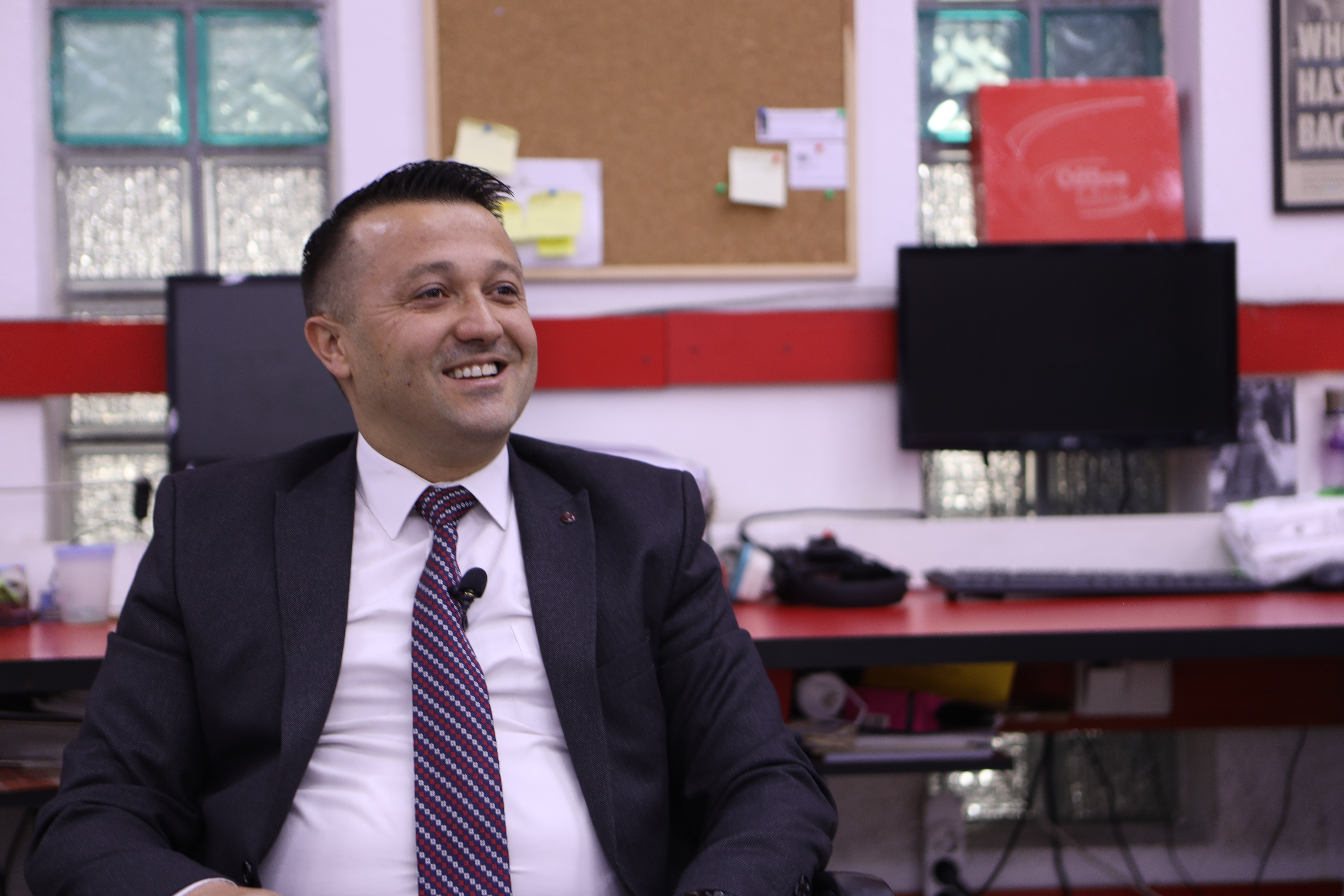

Lack of timely information in minority languages and an absence of funding or specific policies to assist Kosovo’s Roma, Ashkali and Egyptian communities in facing the coronavirus pandemic were among concerns raised during a Jeta ne Kosove debate this week.
A debate on BIRN’s televised programme Jeta ne Kosove on Thursday saw government ministers, MPs and members of civil society organisations discuss the risk of Kosovo’s most marginalised citizens being infected with COVID-19, in particular the country’s ethnic minority communities.
Citizens and activists from Peja, Fushe Kosove, Prizren, Komoran, Vitomerica and Klina also participated in the programme remotely via Skype.
During the show, BIRN aired an investigation highlighting how the majority of Kosovo’s minority communities lack gloves, masks and other equipment to protect themselves from infection. The investigation also revealed that an absence of institutional communication has meant that the media has been their only source of information about the virus.
Members of Kosovo’s minority communities voiced their concerns that since the pandemic began, a lack of consistent information in their native languages, including Roma, Serbian, Bosnian and Turkish, has left them uninformed on measures to combat the spread of the virus.
Concerns that many members of Kosovo’s minority communities rely on day-to-day income to provide for their families were also raised, with fears over having enough money to buy food growing for those lacking economic security.
Insufficient government coordination to assist communities
During the debate, Kosovo MP from the Egyptian Liberal Party, Veton Berisha, said that he asked the government on 14 March to allocate additional funds to assist minority communities specifically in tackling the pandemic, but according to him, this has not happened.

“Besides the measures taken, which I have welcomed, I requested institutional budgetary support directly from the prime minister at the Kosovo Assembly,” Berisha said. “There was a demand from people within the government to vote in favour of the budget, but not even a single cent [has been allocated] for the current situation.”
According to Berisha, he sent a letter to then-Prime Minister Albin Kurti on 20 March. “I explained to him that the situation is alarming, and roughly 15,000 families are facing difficult situations, with no access to water or waste removal services. We are being urged to wash our hands while people live in dirt,” Berisha said.
Berisha criticised the Minister of Administration and Local Government from the Bosniak community, Emilija Rexhepi, who he said has not become a “voice” for the Roma, Ashkali and Egyptian communities in the government.
“None of these communities have ever been discussed. Their situation has not been addressed, I still have no official response to this [letter],” said Berisha, adding that he did not vote in favour of approving the budget as “there was no budget line provided for these communities.”
Smajl Demaj, a student from Klina, stated that the mayor of his municipality had requested funding and extra hospital equipment from Rexhepi’s ministry, but that the requests had fallen on deaf ears.
Rexhepi responded by noting that it was impossible for municipal bodies in Kosovo to support their residents prior to the budget’s approval, adding that sufficient reserves statewide means that there is no need for panic.
“We are working quietly and without panic. We have connections with all municipalities,” Rexhepi said. “We have received large state funding which will be used for medical assistance and which will then be allocated. Ten days after the outbreak of coronavirus in our country, we have done everything required.”
Gracanica-based journalist Budimir Nicic said that 11 Kosovo Serbs had been tested in the town, and all returned negative. “There are about 100 people in isolation in Gracanica, mainly those who came from Serbia this week and were advised to stay in their homes, and the police are monitoring them closely,” he said.
Debate participants raised questions over the existence of a government plan to protect communities from the spread of coronavirus, and whether they have information on the number of people who were tested for COVID-19 among the Egyptian, Ashkali and Roma communities.
“A humanitarian crisis could be triggered by the fact that people in these communities are unemployed and dependent on the daily economy,” said Isak Skenderi, a civil society activist from Gracanica.

In response, Rexhepi replied that she had asked the government to allocate additional funding “for all citizens of Kosovo,” not just for minority communities.
Absence of translation of official government statements “a problem”
The audience expressed further concern that timely information from the Kosovo Government concerning its response to COVID-19 was not available in their native languages.
Student Tarik Music asked Rexhepi whether measures have been taken to raise awareness about coronavirus amongst the Bosniak community.
Rexhepi stressed that the Bosniak community does not yet have its own municipality to which the state can directly address concerns. “Although we live across all cities of Kosovo, we are mostly focused and operate with the Municipality of Prizren and are constantly in contact with [the Bosniak community there],” Rexhepi added.
Darko Dimitrevic from Peja said that the Serb community had been disregarded by the Kosovo Government, saying that translation of official statements are often provided late.
“What comes to us generally is from the local Serbian media in Kosovo, and statements we do receive from Kosovo institutions come late,” he said.
Dusan Radokavic, who lives in North Mitrovica, asked panelists whether someone would be able to speak to him in Serbian if he decides to go to Prishtina for a medical examination.
Bashkim Ibishi, executive director of NGO ‘Advancing Together,’ said that he was sure someone would be available. “There is a team dealing with this issue, and I know there are doctors at the hospital in Prishtina who speak Serbian,” he said.
According to Rexhepi, all announcements made by her ministry are available in all official languages. “I always make sure that every announcement we make at the central level and every announcement that I have submitted to the 38 mayors has been in Albanian and Serbian, and you cannot deny that,” the minister said, adding that it was the responsibility of mayors and the media to help disseminate this information.

Nicic stated that reports from Rexhepi’s ministry were published in all official languages, but claimed that in the last 10-15 days of the coronavirus epidemic, he received only four reports from Kosovo institutions in the Serbian language. He added that this was typically around one day after the Albanian version had been published, while in the same time period he received between 20 and 30 memos available only in Albanian.
According to Nicic, during press conferences by the Ministry of Health, translation of information into any minority language has also been absent. “The health minister holds a media conference, there is no translation. His colleague asks him why there is no translation, and he promises that this will not happen again. This is a problem,” Nicic said.
This series of debates has been supported and funded by UNMIK.
27 March 2020 - 18:27

Kosovo Police arrested eight people for failing to comply with decisio...

Two more individuals tested positive for coronavirus in Kosovo on Frid...

An 82-year-old patient from Podujevo that tested positive for coronavi...

Senior government figures have denounced President Thaci’s proposal ...

Supermarkets reduce opening hours, arrests continue for violating gove...